Puppet state? How Putin’s war could drive Belarus deeper into Russia’s clutches
Russia’s invasion of Ukraine is likely to isolate Belarus further and leave its leader Alexander Lukashenko in an increasingly difficult position with Vladimir Putin pulling the strings, reports Amanda Coakley

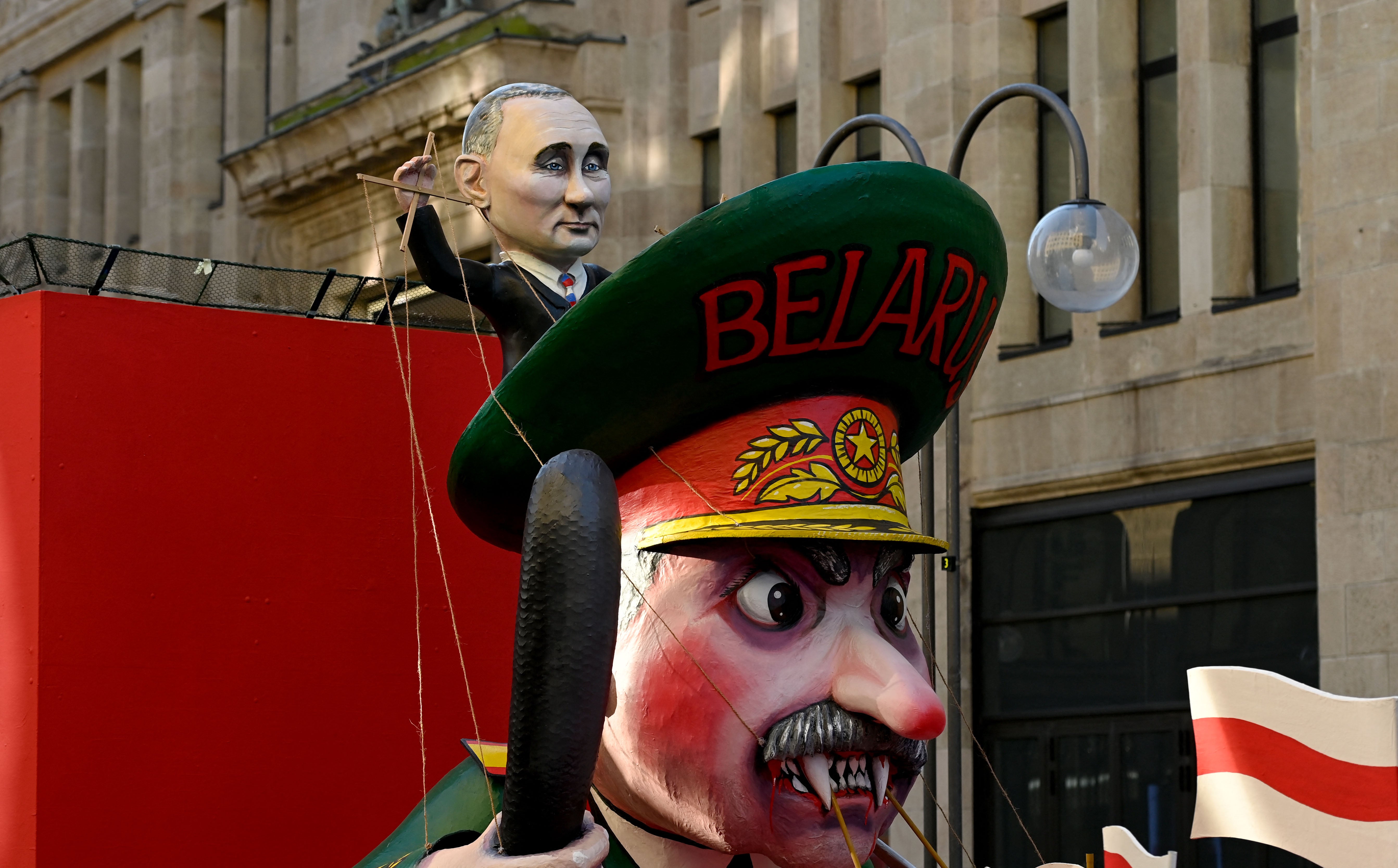
Standing in front of his security council this week, Belarus’s strongman president Alexander Lukashenko pointed to a map that set alarm bells off across Europe. The map, which divided Ukraine into four parts, appeared to show Russia’s plan of attack and main targets. It also suggested that Moldova – a former Soviet country – could be invaded.
In Chișinău, the capital of Moldova, the Belarusian ambassador Anatoly Kalinin was quickly summoned to the Ministry for Foreign Affairs, where he walked back his president’s erratic speech.
“Belarus highly appreciates Moldova’s position on maintaining the principles of constitutional neutrality and, in turn, confirm there is no threat to Moldova’s security from the Republic of Belarus,” he said in a statement.

Since Russia invaded Ukraine on 24 February, speculation over the likelihood of Minsk putting troops on the ground has reached fever pitch. On the morning of Russia’s assault, Belarus, a country of 9.4 million people, was used as a staging ground for Russian troops to cross the Senkivka checkpoint to advance towards Kyiv, Ukraine’s capital.
Since then, more Russian units have streamed over Belarus’s southern frontier, every day increasing the possibility of Minsk being dragged into the most serious conflict in Europe in several decades.
Mr Lukashenko has said such an event is unlikely to take place, but it is not known how much influence the 67-year-old has over his own military, given Russia’s hold on the Belarusian government.
The president has previously said his men could become engaged in conflict if needed, and this week Finland’s defence minister, Antti Kaikkonen, referred to intelligence that suggested “Belarus is considering taking a larger role” in the war in Ukraine.
There are many reasons to assume that Putin thinks Belarus, like Ukraine, has no legitimate right to exist
However, some analysts believe Mr Lukashenko could be trying to distance himself from the conflict. Since the invasion, Belarus has hosted two rounds of negotiations between Russian and Ukrainian delegations, a move that was pre-approved by Moscow.
“Usually, this pledge by Lukashenko that Belarusian forces would not become involved would have been ignored, just as we don’t believe anything that comes from Putin’s mouth,” said Keir Giles, a senior consulting fellow at Chatham House’s Russia and Eurasia programme.
“However, after the first week of the invasion and Russia’s failures and setbacks, it’s now a very different situation than when they started – and I think you can understand Lukashenko trying to distance himself from it,” he told The Independent.
“It could even be that Lukashenko has received candid advice from the Belarusian military who have not always been the arm of the government that wanted closer ties with Moscow,” he added.
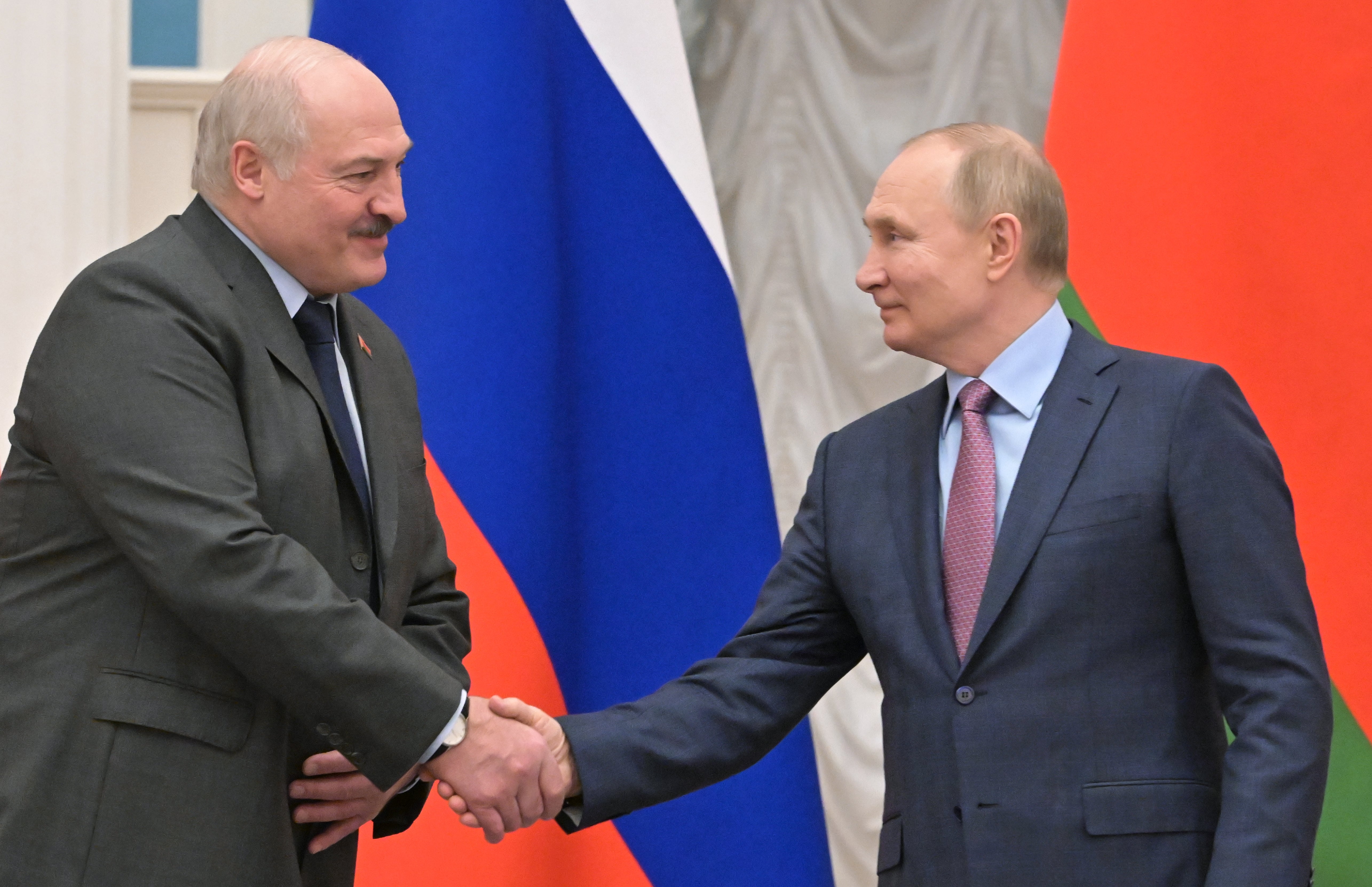
On Wednesday the Belarusian Catholic Church pleaded with Mr Lukashenko to refrain from any escalation.
Around 73 per cent of Belarusians consider themselves Orthodox and 12 per cent Catholic according to the Pew Research Centre.
After contested presidential elections in August 2020 that Mr Lukashenko’s opponents say were rigged, the president had to look to the Kremlin for support after years of trying to balance relations with east and west.
Claiming to have won more than 80 per cent of the vote, his police forces arrested and beat thousands of people who stood up for Belarusian democracy. Today there are more than 1,000 political prisoners in the country’s poorly run prisons and around 200,000 people have fled.
Mr Putin offered military support to Mr Lukashenko to stop the protests in 2020 and told western states to not meddle in Belarusian affairs. He also gave a $1.5bn loan to his Belarusian counterpart weeks after the election as a gesture of support.
This summer, Minsk manufactured a refugee crisis on the EU’s borders in retaliation for tough sanctions slapped on the country following the crackdown of 2020.
Belarusian proxies told some of the world’s most vulnerable people that they could enter the EU via Minsk and offered them flight tickets and accommodation in the capital for a hefty fee. After they were bussed to the border with Poland, Lithuania, and Latvia they were pushed back by border guards and prevented from returning to Minsk. EU leaders claimed it was Mr Putin who was the mastermind of the plan.
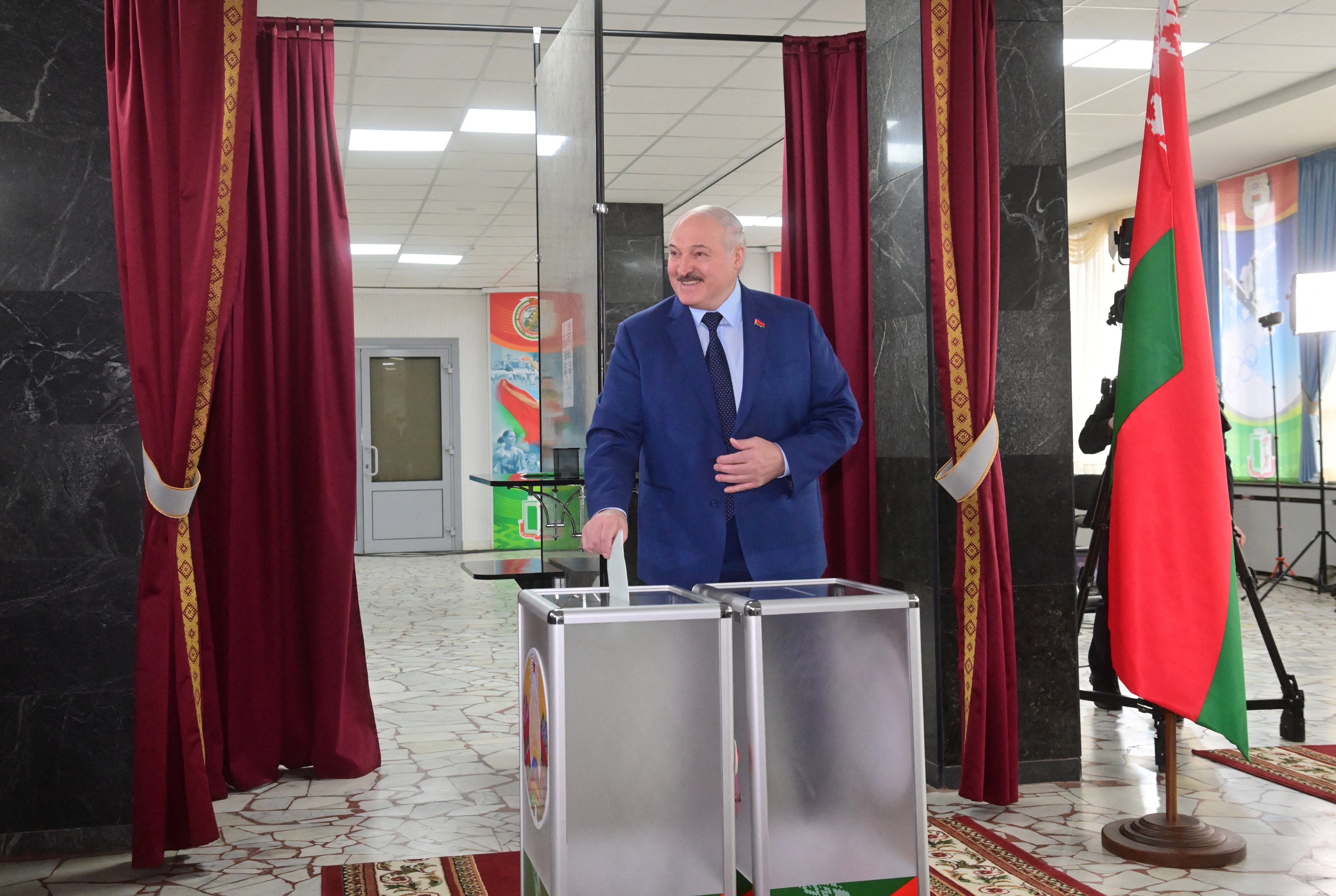
European security concerns around Russian-Belarusian relations escalated in February when the two countries started conducting military drills along Belarus’s border with Ukraine. Days before the invasion began, Belarusian defence minister Viktor Khrenin announced the joint exercises would be extended.
By the time the first Russian missile reached Ukrainian soil, an estimated 30,000 Russian troops were stationed in Belarus, north of Ukraine. Minsk claimed Russian troops were needed to counter a supposed threat from Ukrainian forces.
The European Union’s foreign affairs chief, Josep Borrell, last month accused Mr Lukashenko of allowing his nation to become a Russian satellite state, while a senior US official recently said that “Minsk is now an extension of the Kremlin”.
This view was echoed by analyst Katia Glod, who said Belarus’s complicity in the war in Ukraine will have devastating consequences for the country, and likely turn it into a puppet state.
“As Putin does not recognise the post-Soviet international order, there are many reasons to assume that he thinks Belarus, like Ukraine, has no legitimate right to exist,” Ms Glod, a fellow at The Center for European Policy Analysis, wrote this week.
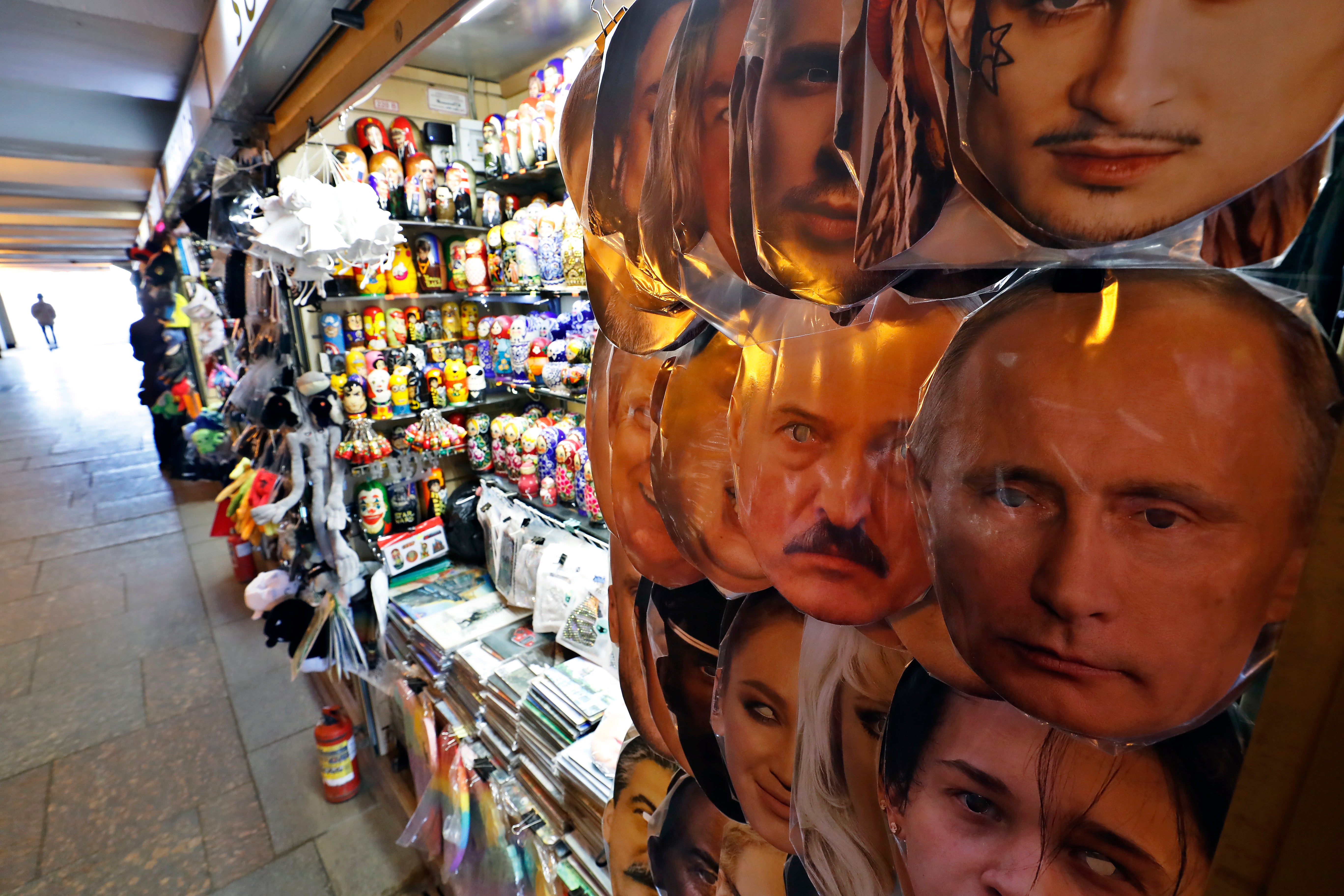
“Putin is likely to push forward for political integration under the Union state between Belarus and Russia, which would effectively downgrade the Belarusian government and state institutions.”
In the 11 days since the invasion, the European Union, US and UK have all launched fresh sanctions targeting both the Belarusian economy and key members of Mr Lukashenko’s inner circle.
In the latest such development, South Korea’s foreign ministry said on Sunday that it will implement export controls against Belarus for “effectively supporting the Russian invasion of Ukraine”.
Given the fact that EU sanctions will block 70 per cent of Belarus exports to the bloc, Minsk will become increasingly dependent on Moscow in the coming months, yet both are likely to face further sanctions and businesses severing ties.
More than 350 civilians have been killed in the war in Ukraine so far, according to the UN human rights office, and there is little appetite among the Belarusian people to join the war.
Belarus’s exiled opposition leader, Sviatlana Tsikhanouskaya, who has announced a quasi-government in exile and accused Mr Lukashenko of “high treason”, has called for her people to engage in civil disobedience to disrupt train lines and roads integral to Russian manoeuvres in Belarus.
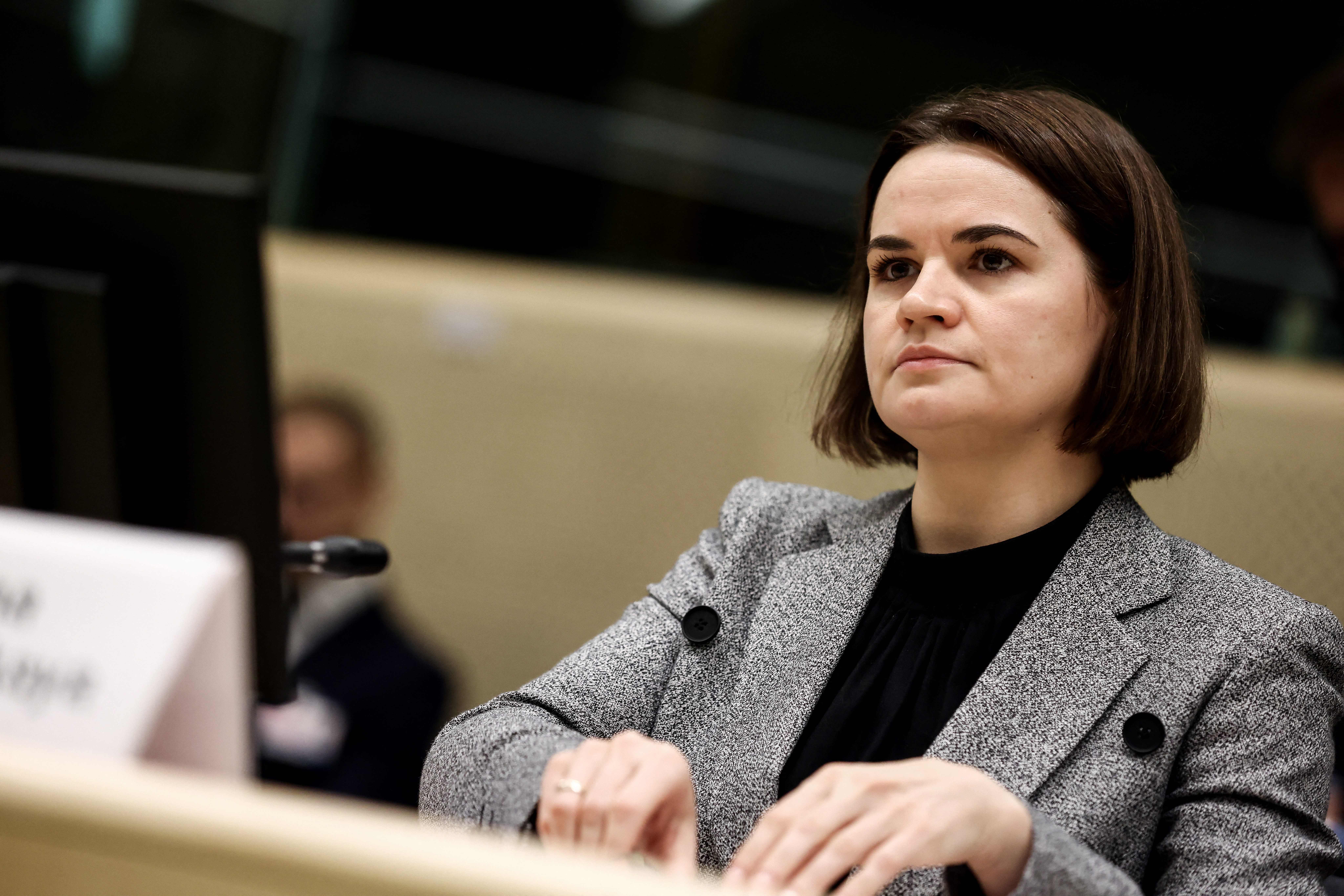
Hundreds of people turned out to protest Belarus’s role in the Russian invasion and the conflict itself on 26 February, the day of a constitutional referendum that saw the country ditch its non-nuclear status and could pave the way for Russian nuclear missiles to be housed on Belarusian soil.
The changes, which passed with a purported 65 per cent of the vote, will also strengthen Mr Lukashenko’s grip on power for decades to come.






Join our commenting forum
Join thought-provoking conversations, follow other Independent readers and see their replies
Comments